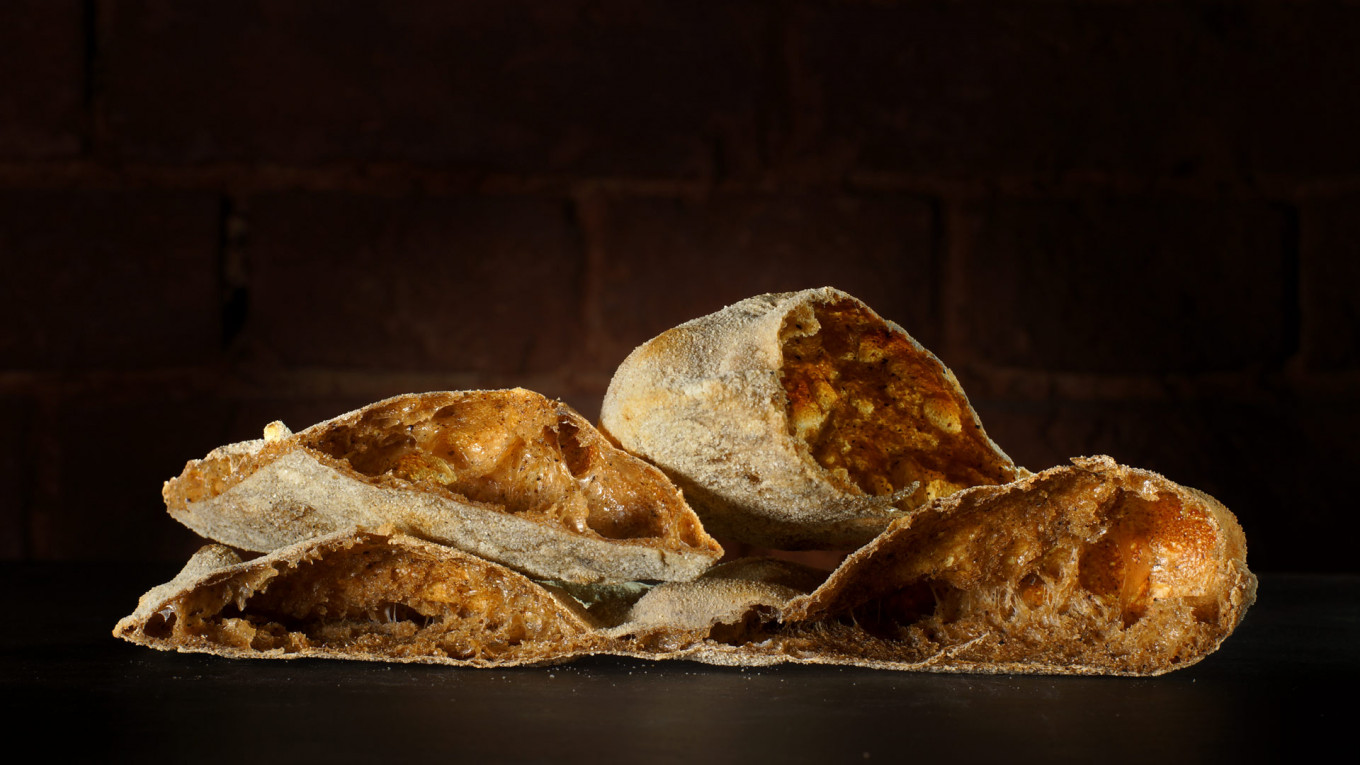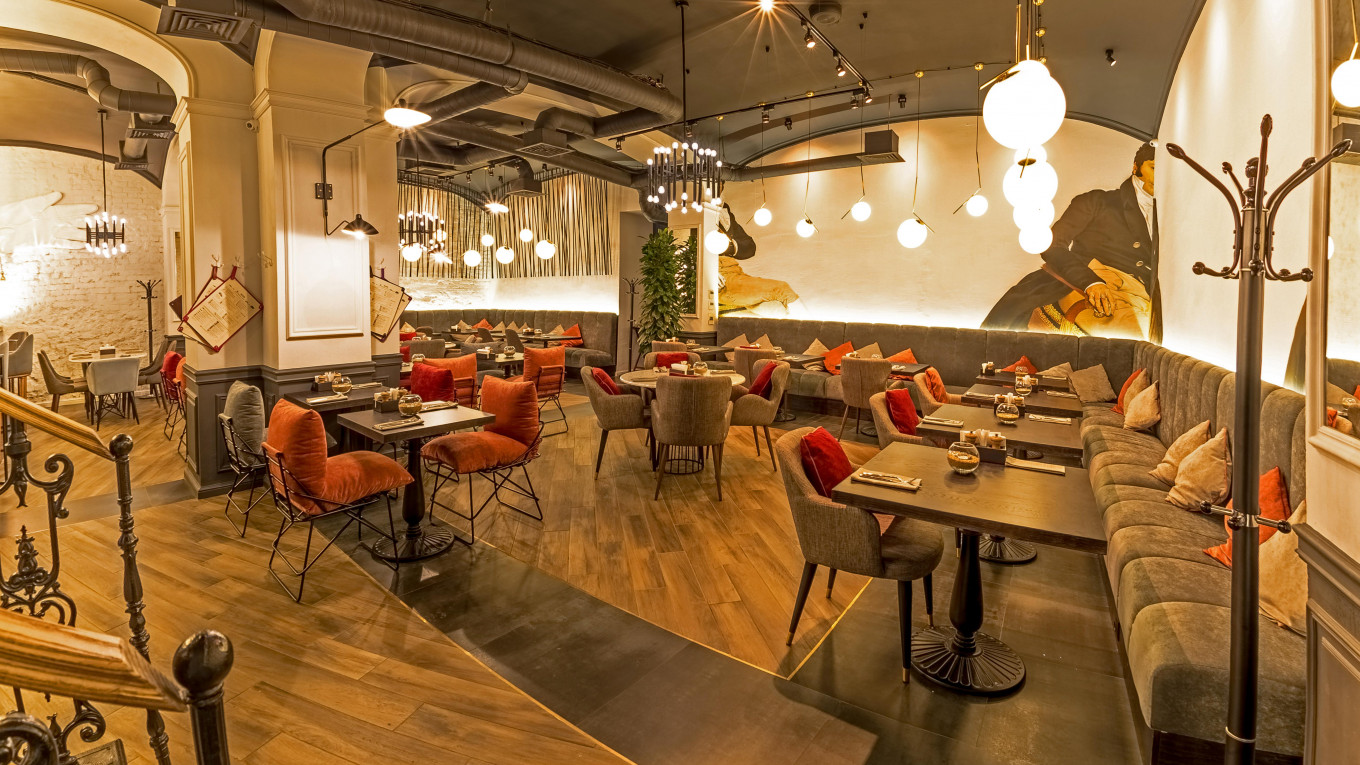The trend for “new” Russian food has now gathered enough momentum that the blueprint is familiar: Dust off some old imperial recipes, strip away the grease and stodge and add a modern twist while keeping the focus squarely on fresh, locally-sourced produce. Omit beets, cabbage, duck and rabbit from the menu and you clearly haven’t got the memo.
The approach has been something of a revolution for Moscow’s Russian cuisine, which has been rudely shaken from its century-old slumber. This time, however, it’s a radicalized bourgeoisie riding to the rescue, overturning the tables of the dour Soviet stalwarts and giving the mayonnaise-and-dill brigade their marching orders.
Yet, amid all this zeal to reinvent the past and transport Russian dining into a brighter future via a kind of fictionalized 19th-century rustica, there’s a nagging feeling that the tsar might not be wearing all of his clothes. After all, northern Russia’s climate and poor soil mean that the chief stock-in-trade remains limited to root vegetables, poultry, fish and red meat.
Beetroot, sorrel, rye and buckwheat have distinct flavors, of course, but sometimes the taste buds rebel against subtlety and softness and cry out for bolder, more explosive sensations, for the fizz of citrus and the spicy splash of chili.
Concept chef Yevgeny Ivanov, it appears, has identified this blind spot and is attempting to develop a brand of new Russian cuisine that adds a little pizzazz to these gentle flavors and textures. At new restaurant Odoyevsky, he takes the usual ingredients and sexes them up, dishing up pumpkin marinated in sea buckthorn and duck with date sauce, or dabbing paprika and chick peas onto cream cheese on home-baked rye bread crackers. Lamb noisette with quince and spinach and peppermint sauce epitomizes Ivanov’s approach.
Like most gambles, sometimes this adventurism pays off and sometimes it doesn’t. The carpaccio of salmon marinated in cranberry with beetroot for 400 rubles ($7) is a case of what could have been. Surprisingly, the salmon comes off second-best to the beet, and while the acid tones of cranberry are a natural complement to the creaminess of salmon flesh, only the texture is a reminder that it’s red fish you’re eating, not salmon-flavored beetroot.
Likewise, spicy lamb pottage with caramelized orange slices (390 rubles) promises much but turns into a frustrating game of hunt-the-orange. “There isn’t any,” says the waitress when asked about the missing mandarin. The soup bears the loss, but something is lacking.

Odoyevsky fares better with its signature dishes, such as beef entrecote (290 rubles per 100 gram), which according to the menu is cooked for days in a Russian stove. The meat falls apart beautifully in its juices, and a lashing of red peppercorns gives it a burst of heat. But the accompanying “old Russian” steamed cabbage cries out for seasoning — it’s somewhat akin to eating damp shredded hay.
Odoyevsky is owned by the folks behind Professor Poof, the popular “Russian street food” café on Volkhonka. But where its sibling aims for a bright, minimalist vibe, the subterranean Odoyevsky is a sortie into the evening scene, with in-house cocktails, low lighting and plush banquettes. There are DJs on weekends.
It’s worth dropping in just to try Odoyevsky’s crusty stone-baked bread, which you can buy to go. The loaves include rye bread, wheat bread, malt bread with cranberry, and even baguettes.
A Message from The Moscow Times:
Dear readers,
We are facing unprecedented challenges. Russia's Prosecutor General's Office has designated The Moscow Times as an "undesirable" organization, criminalizing our work and putting our staff at risk of prosecution. This follows our earlier unjust labeling as a "foreign agent."
These actions are direct attempts to silence independent journalism in Russia. The authorities claim our work "discredits the decisions of the Russian leadership." We see things differently: we strive to provide accurate, unbiased reporting on Russia.
We, the journalists of The Moscow Times, refuse to be silenced. But to continue our work, we need your help.
Your support, no matter how small, makes a world of difference. If you can, please support us monthly starting from just $2. It's quick to set up, and every contribution makes a significant impact.
By supporting The Moscow Times, you're defending open, independent journalism in the face of repression. Thank you for standing with us.
Remind me later.






